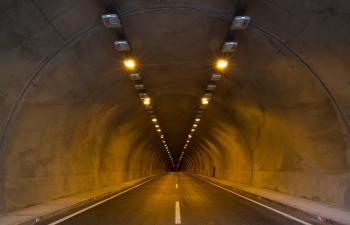Analyzing Infrastructure Spending Statistics and the Role of Construction Project Management in India
Introduction to Infrastructure in India
Infrastructure is the backbone of any thriving economy, and India, as one of the fastest-growing economies in the world, is no different. India's infrastructure sector has been a key driver for the nation's overall development and enjoys intense focus from the government for initiating policies to ensure world-class infrastructure in the country.
The current state of infrastructure in India is a mixed bag. On one hand, we have seen significant advancements in areas like digital infrastructure, power, and transportation. On the other hand, challenges persist in areas like water supply and sanitation, waste management, and rural infrastructure.
Detailed Infrastructure Spending Statistics in India
In recent years, India has significantly ramped up its infrastructure spending. According to the Union Budget 2020-2021, an outlay of over INR 100 trillion (approximately $1.4 trillion) was planned for infrastructure projects over the next five years. This represents a considerable increase from the previous years.
When we delve into the sector-wise allocation of funds, a substantial portion of this budget goes into the transportation sector, including roads, railways, and civil aviation, along with vital sectors such as energy, irrigation, and urban development. In the fiscal year 2019-2020, the government of India spent about INR 3.38 trillion ($45.48 billion) on major infrastructure sectors, demonstrating a growth rate of 22% compared to the previous year.
However, when juxtaposed with global infrastructure spending, there is still room for improvement. As per the Global Infrastructure Outlook, India needs to spend around $4.5 trillion by 2040 to develop infrastructure to improve economic growth and community well-being.
These statistics underscore the magnitude of the commitment India has towards infrastructure development and the potential for growth in the construction project management sector.
Role of Construction Project Management in Infrastructure Development
Effective Construction Project Management (CPM) plays a crucial role in infrastructure development. It encompasses planning, coordination, and control over the various tasks involved in construction projects. This can range from the design and development of a building to reconfiguration or maintenance. CPM aims to ensure that the client's objectives in terms of function, time, and costs are fulfilled.
In the context of India's infrastructure development sector, the role of CPM cannot be overstated. For the successful completion of any infrastructure project, efficient project management is vital. The government's ambitious infrastructure plans, involving large budgets and complex technical requirements, call for advanced project management techniques. Whether it's a highway construction project or a city's waste management system, proper construction project management ensures optimal utilization of resources, risk mitigation, cost savings, and timely completion.
Over the years, key construction projects in India, such as the Bandra-Worli Sea Link or the expansion of the Delhi metro, have been successful due to efficient project management. These projects highlight how good construction project management can overcome challenges, streamline processes, and deliver results. Hence, understanding the nuances of CPM and investing in its processes can have a transformative effect on infrastructure development in India.
Impact of Effective Construction Project Management on Infrastructure
The impact of effective Construction Project Management (CPM) on infrastructure is profound and multifaceted. At the heart of successful infrastructure development, it ensures that projects are not only completed on time and within budget but also meet the set quality standards. This is particularly important in India, where infrastructure projects often face multiple challenges such as bureaucratic hurdles, land acquisition issues, and logistical difficulties.
Through meticulous planning and efficient resource management, CPM can significantly mitigate these issues. For instance, the Delhi Metro project, widely regarded as a benchmark in efficient construction project management, was completed ahead of schedule and within the stipulated budget, a rarity in the realm of Indian infrastructure projects.
Moreover, effective CPM has socioeconomic implications as well. It leads to the construction of high-quality infrastructure, which in turn spurs economic growth, improves living standards, and facilitates social progress. Thus, the impact of effective Construction Project Management extends beyond the realm of infrastructure development, permeating various aspects of the economy and society.
Future Trends in Infrastructure Spending and Construction Project Management
Looking ahead, infrastructure spending in India is predicted to increase significantly over the coming years. As per the National Infrastructure Pipeline (NIP), the Indian government plans to spend $1.4 trillion on various infrastructure projects from 2019 to 2025. This ambitious target, if achieved, will not only spur economic growth but also create vast opportunities for construction project management.
In tandem with the rise of infrastructure spending, construction project management in India is also evolving. The increased complexity and scale of future infrastructure projects will necessitate more sophisticated project management approaches. There is a growing emphasis on digital project management tools, with technologies like Building Information Modelling (BIM), Artificial Intelligence (AI), and data analytics gaining prominence. These tools can enhance project planning, coordination, and communication, thereby improving project outcomes. Moreover, there's a growing recognition of the importance of sustainability and green construction practices, which is likely to shape the evolution of construction project management in the near future.
Conclusion
In conclusion, analyzing infrastructure spending statistics in India provides a window into the country's economic development trajectory. Effective construction project management plays a crucial role in this journey, ensuring that the infrastructure development process is efficient, sustainable, and delivers maximum value for the investment. As infrastructure spending continues to increase in India, the importance of construction project management is only set to grow.


